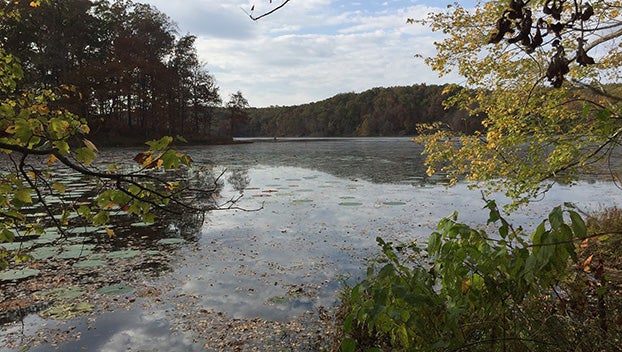EPA pauses enforcement of waters of the U.S. rule after SCOTUS ruling
Published 8:53 am Monday, July 10, 2023

- Land Between the Lakes
For decades, the Clean Water Act has regulated the “waters of the United States,” creating and enforcing quality standards to avoid pollution in streams, oceans, rivers and lakes.
But the definition of “waters of the United States” has become a political football, as each presidential administration narrows and broadens it to include or exclude other bodies of water.
Now, several recent court decisions have offered clarification to states like Kentucky.
Under the Obama administration, the WOTUS rule was broadened to include not only navigable waters like rivers and lakes, but also wetlands and bodies of water that either are “relatively permanent” or have a significant connection to or effect on larger waterbodies.
The Trump administration narrowed this federal rule, effectively leaving state environmental regulatory agencies primarily responsible for pollution management in smaller, non-navigable bodies of water like wetlands.
Last December, the Environmental Protection Agency and the Army Corps of Engineers tried to broaden the WOTUS rule, to pre-2015 regulations.
But now, after a Supreme Court case and several other lawsuits, including one filed by Kentucky Attorney General Daniel Cameron, that new rule has been struck down.
Cameron filed suit in February 2023 challenging the WOTUS rule. He argued that violated the Federal Water Pollution Control Act, the Administrative Procedure Act and the 10th Amendment, which gives the states powers not specifically designated to the federal government in the Constitution.
He added that the rule would unnecessarily overburden farmers and other stakeholders by creating barriers to producing livestock and crops and increasing planning and permitting costs for state infrastructure projects.
“The Biden administration’s new WOTUS rule requires Kentucky farmers to choose between paying costly permit fees or facing the risk of significant civil or criminal penalties for making simple changes to their property,” Cameron said at the time.
After a Kentucky federal district court dismissed the case, Cameron appealed to the U.S. Court of Appeals, which temporarily stopped enforcement of the WOTUS rule in Kentucky while the Supreme Court decided on a federal lawsuit concerning the same issue – Sackett v. EPA.
In Sackett, a couple bought land in Idaho to build a home. They began backfilling their lot with dirt in preparation, but the EPA ordered them to stop or face a $40,000 daily fine because the land contained wetlands that were included in the then-WOTUS definition.
The Sackett’s wetlands were near a ditch that fed into a creek that fed into a navigable lake. In 2008, the Sacketts sued the EPA. Nearly 15 years later, the case reached the Supreme Court.
In May, SCOTUS rejected the EPA’s new rule, which it said gave the agency “virtually limitless regulatory authority” over the nation’s lands and waters.
Its opinion stated that waters of the U.S. should only include streams, oceans, river and lakes, as well as adjacent wetlands that are “indistinguishable” from the aforementioned bodies of water due to a continuous surface connection.
The EPA agreed to start its WOTUS definition from scratch and will issue a new final rule by Sept. 1.
Several environmental groups have spoken out against the Supreme Court ruling.
Kentucky Waterways Alliance called the ruling a “major loss for clean water in Kentucky” in a tweet.
“The #SCOTUS decision puts polluters over people, severely limiting the @EPA’s ability to protect our nation’s waters,” KWA tweeted.
Tom Kiernan, president of American Rivers, also called the decision a “serious blow to wetlands, which are essential to clean, affordable drinking water, public health and flood protection.”
“Without strong, science-based protections, the rivers and wetlands that are the lifeblood of our nation will suffer irreparable harm,” Keirnan said. “We risk going backwards to a time of beach closures and rivers choked with pollution.”
However, many Kentucky farmers have embraced the decision.
Larry Thomas, a Hardin County farmer and chairman of the Kentucky Soybean Promotion Board, said that the proposed WOTUS rule went further than the Clean Water Act was designed to go.
“I think there’s a misconception out there that if the EPA is not regulating the waters, then nobody’s regulating, which is not true because where federal jurisdiction stops, state jurisdiction picks up,” he said.
A local agency might understand Kentucky’s topography better than someone in Washington, D.C., Thomas added.
He said that the goal is clarification.
“If a federal regulator, an environmentalist and a farmer walk to a certain spot on their farm, it should be clear to each of those three persons where the jurisdiction stops for federal EPA and where state picks up,” he said. “And it’s not that way, because the rules are so ambiguous.”
Thomas hopes that farmers, home builders and people in the construction industry won’t be as “caught in the middle” of an ever-changing political fight now.
“It’s hard to make plans,” he said. “And I mean, you can’t pollute the waters of Kentucky. That’s the law. So it’s just a question of who gets the jurisdiction.”
Cameron’s lawsuit is paused until the EPA’s new final rule is announced in September.
“Joe Biden’s radical climate agenda would hurt Kentucky – and I won’t allow it,” he said in a July 3 statement upon the EPA’s agreement to halt enforcement of its rule.





